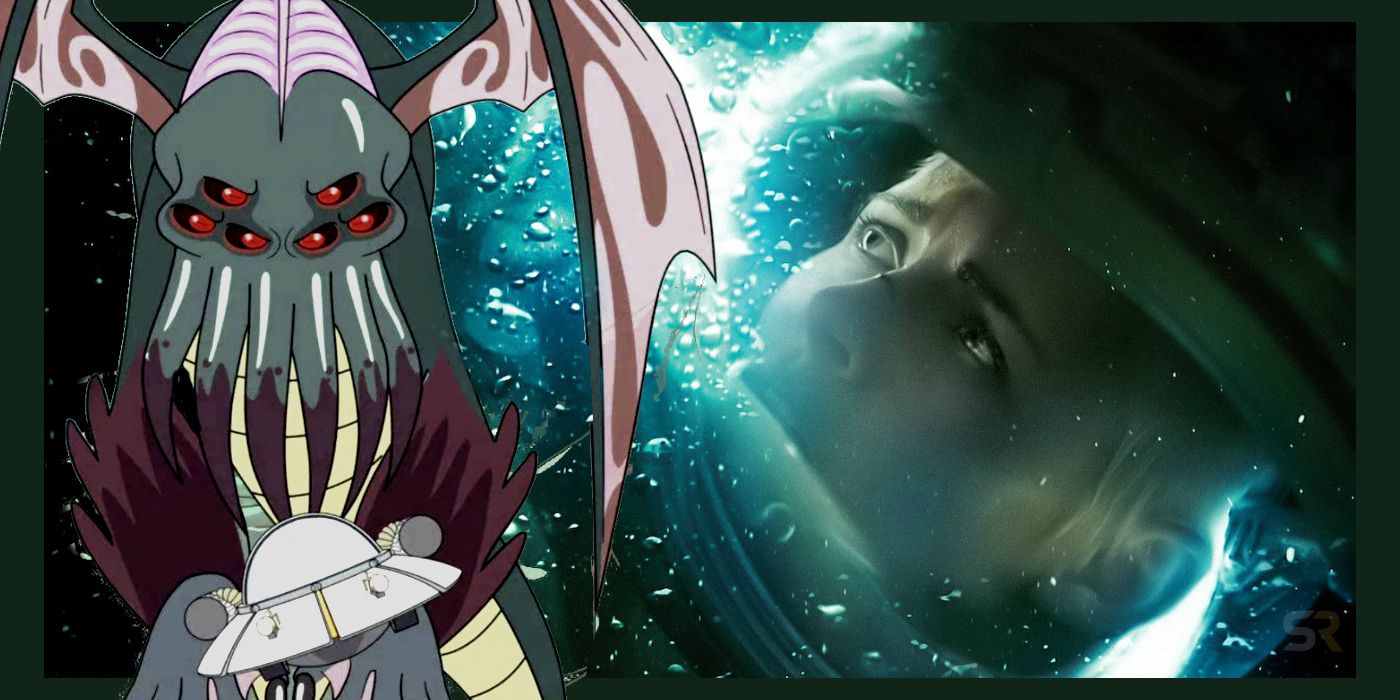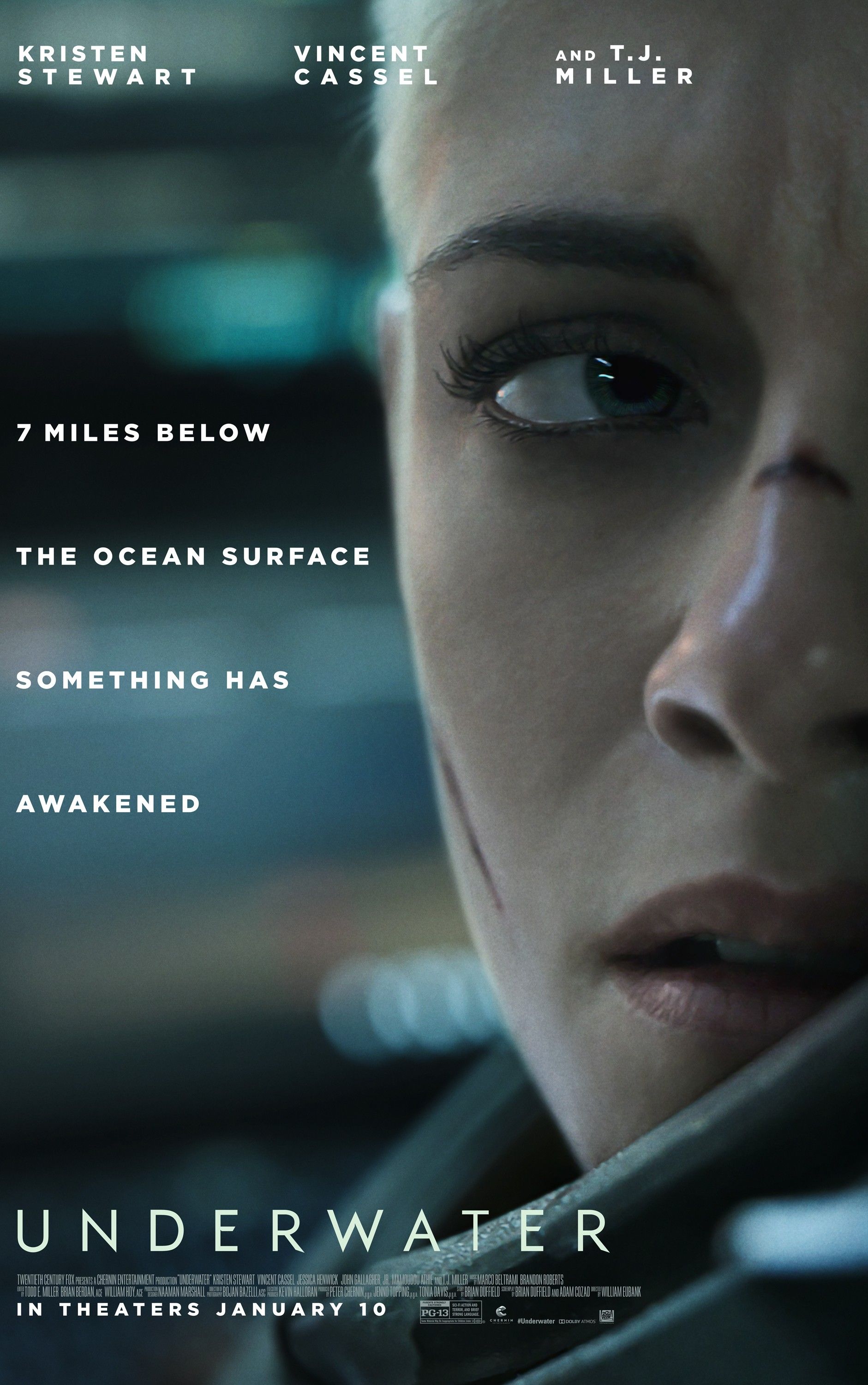The recent dual releases of Color Out of Space and Underwater may point to a re-emergence of the works of author H.P. Lovecraft. Lovecraft's stories have been immensely influential to the horror genre throughout the century since they were first published. Despite this importance, the cosmic, existential threats of Lovecraftian horror have struggled to gain a strong following within mainstream culture the same way slashers and ghost stories have.
The Lovecraft style is defined by its focus on human dread in the face of the unknown, relying on mystery and confusion to fuel its horror more than violence or shocks. There is often a science-fiction element to these types of works, as well, since writers and filmmakers have found that the fantastical helps create a sense of disconcerting unfamiliarity. Of course, this doesn't mean that Lovecraftian horror strays away from its fair share of grisliness. These stories are often filled with tentacled monstrosities and mutations. However, the terror here is existential in nature, daring the human mind to comprehend the dangers it faces.
Color Out of Space, adapted from the Lovecraft story almost identically named "The Colour Out of Space," has steadily risen the indie ranks to become a cult hit. Although the film has only received a limited release so far, its critical success bodes well for a comeback of the Lovecraft style. Directed by Richard Stanley, the feature follows a rural family's darkly surreal encounter with an extraterrestrial threat and contains all the trappings of classic Lovecraft fare. The narrative's unexplained cosmic forces lead to insanity and hysteria, while alien meddling leads to grotesque bodily mutations. The fact that audiences embraced this unabashed approach to Lovecraft's oddities is a positive sign for the author's legacy in contemporary cinema.
Lovecraftian Horror Could Have A Bright Future
The similarly Lovecraft-influenced Underwater released around the same time as Color Out of Space, indicating a potential resurrection of the subgenre. Director William Eubank's aquatic monster movie doesn't follow the cosmic horror mold with the same wild abandon that Stanley's love letter does, but it does contain strong elements of the style. For one, the main characters in Underwater face an ancient creature that is hidden deep underneath the ocean, a premise that's not far removed from the poster child of Lovecraftian horror, the famed Cthulhu. The science-fiction elements and the claustrophobic setting is also highly reminiscent of arguably the most beloved piece of Lovecraftian horror, Ridley Scott's 1979 masterpiece Alien.
However, Underwater was a box office bomb and a critical failure, falling well under financial expectations over opening weekend and earning an unenthusiastic 50% on Rotten Tomatoes. This isn't necessarily surprising for Lovecraft-themed horror movies, either. Recent attempts at "weird fiction," a term used to describe Lovecraft lore that perhaps explains its lack of mainstream appeal, have fallen far short of becoming hits. The trippy ambiguity of the 2018 sci-fi film Annihilation, which has a plot closely resembling "The Colour Out of Space" right down to the shimmering crash-landed object, fared terribly at the box office and most likely spooked executives from green-lighting cosmically existential horror stories. The filmmakers behind the 2016 indie production The Void, a movie literally dripping with nods to Lovecraft, had to start an Indiegogo campaign to get the project funded.
Still, there's hope for the subgenre yet. Horror juggernaut Jordan Peele is the executive producer for the upcoming HBO show Lovecraft Country, a story about the terrors of tentacled creatures and racism alike. It's a satisfyingly ironic venture considering Lovecraft's own xenophobia and questionable outlooks on ethnicity. David Benioff and D.B. Weiss of Game of Thrones fame have also signed on to an adaptation of Hans Rodionoff's graphic novel Lovecraft. Furthermore, the influence of the famed author continues to permeate pop culture at large, even beyond the niche sci-fi and cosmic horror of Underwater and Color Out of Space. Whether it be the sinister occult happenings in detective thrillers, the small-town alien invasions in B-movies, or the unbearable dread in prestige arthouse horror, Lovecraft's legacy abounds.



